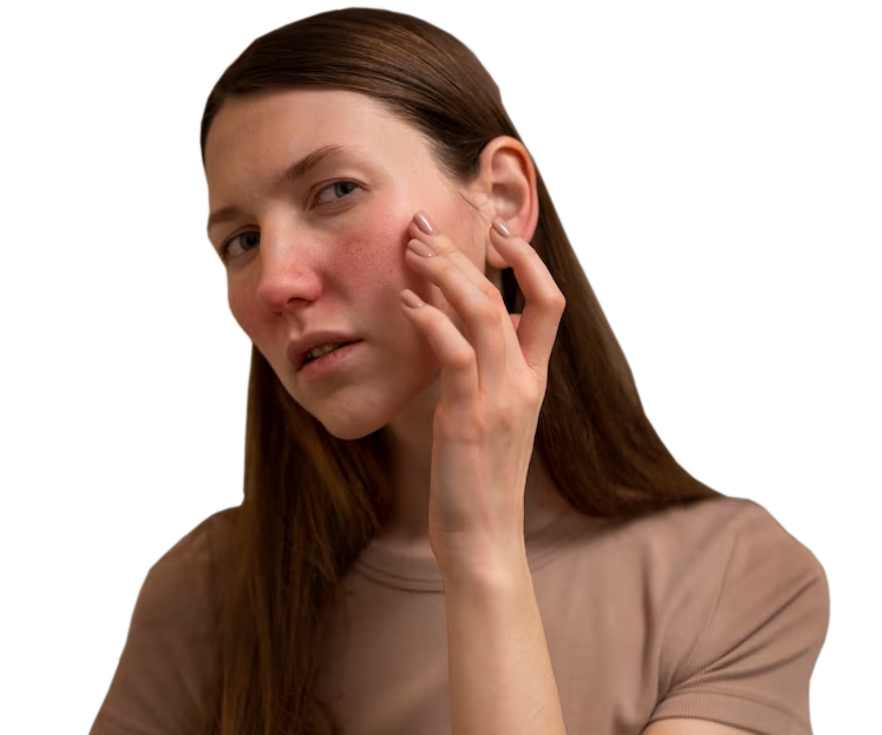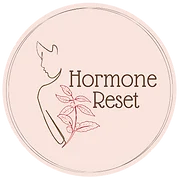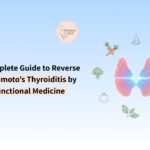Why Lupus is More Than Just an Autoimmune Disease?
Most conventional treatments focus on suppressing the immune system, using steroids and immunosuppressants to control flare-ups. While this can help manage symptoms, it doesn’t address the underlying causes, one of which is hormonal imbalance.
Women are nine times more likely to develop lupus than men, which hints at a strong hormonal connection. The delicate balance of estrogen, cortisol, thyroid hormones, and insulin play a key role in either soothing or igniting the immune system.

The Hormone Reset Functional Medicine Approach: A Path to Healing
1. Comprehensive Hormone Testing
Instead of just managing symptoms, functional medicine uses advanced testing to analyze hormone levels, identifying imbalances that contribute to lupus flares.
2. Anti-Inflammatory and Hormone-Balancing Nutrition
A lupus-friendly, hormone-reset diet focuses on:
- Balancing blood sugar with whole foods and fiber-rich meals.
- Boosting gut health with probiotics and anti-inflammatory foods.
- Detoxifying excess estrogen through cruciferous vegetables like broccoli and kale.
- Omega-3 fatty acids (found in wild salmon, flaxseeds) to lower inflammation natural
3. Healing the Gut to Reset Autoimmunity
Gut health is central to immune regulation. Functional medicine practitioners address leaky gut syndrome, which is often a hidden trigger of autoimmune flares.
- Remove processed and inflammatory foods (gluten, dairy, processed sugar).
- Replace with organic, unprocessed whole foods.
- Replenish with probiotics and digestive enzymes.
- Repair and regeneration of the gut is done by adding in nutrient dense foods, phytonutrients (antioxidants, flavonoids, etc), omega-3 rich sources, gut repair supplements, etc.
- Restore and retain with gut-healing nutrients like collagen and L-glutamine and foundational lifestyle changes that support long term gut and overall health.
Meet Our Specialists

Dr. Ruhi Agarwala

Dr. Siddarth Goel
How Hormonal Imbalance Triggers Lupus?
Women are nine times more likely to develop lupus than men, which hints at a strong hormonal connection. The delicate balance of estrogen, cortisol, thyroid hormones, and insulin play a key role in either soothing or igniting the immune system.
Hormones That Worsen Lupus
Insulin Resistance – Poor blood sugar control fuels systemic inflammation, making lupus flare-ups more severe.
Estrogen Dominance – High levels of estrogen can over-stimulate the immune system, leading to increased autoimmunity and inflammation.
Cortisol Dysregulation – Chronic stress leads to fluctuating cortisol levels, weakening immune tolerance and worsening lupus symptoms.
Thyroid Dysfunction – Many lupus patients have undiagnosed or subclinical hypothyroidism, further exacerbating various factors connected with lupus as also fatigue and inflammation.
Success Stories: Real-Life Reversals of Lupus Symptoms
Many lupus patients following a Hormone Reset Functional Medicine Approach have reported:
✔ Reduced joint pain and inflammation
✔ Reversal of damage to various organs
✔ Increased energy levels and mental clarity
✔ Fewer flare-ups and better skin health
✔ A restored sense of well-being and resilience
Take Charge of Your Health: The Future of Lupus Care
Lupus doesn’t have to be a lifelong battle with medications and unpredictable flare-ups. By addressing hormonal imbalances, gut health, stress, and toxicity, you can take control of your body and significantly reduce the impact of lupus.
Functional medicine offers a personalized approach to healing, rather than a one-size-fits-all suppression of symptoms. It’s time to move beyond just surviving and start thriving with a hormone reset approach to lupus!
Further if you’re looking for one-on-one consultation with our Specialists, then Book Now!
Can Hashimoto’s Be Reversed? The Functional Medicine Perspective
Many conventional doctors claim that Hashimoto’s cannot be reversed, but the Functional Medicine approach challenges that notion. Instead of merely managing symptoms with lifelong medication, Functional Medicine focuses on addressing the root causes, calming the immune response, and restoring Hashimoto’s Thyroiditis.
Can Hashimoto’s Go Into Remission?
Yes! Studies and patient experiences show that reducing inflammation, repairing the gut, balancing hormones, and optimizing nutrition can lead to significant improvements—sometimes even full remission. The goal is to reduce thyroid antibodies, restore energy levels, and prevent further thyroid damage.
How Does Functional Medicine Reverse Hashimoto’s?
Liver Detox & Stress Management: A well-functioning liver and adrenal system ensures thyroid hormones are activated properly and stress does not exacerbate the condition.
Stopping the Immune Attack: By identifying triggers like gluten, dairy, toxins, stress, and infections, Functional Medicine removes the root causes of inflammation.
Healing the Gut: Since 80% of the immune system is in the gut, restoring gut health through diet, probiotics, and healing nutrients can help halt autoimmune attacks.
Balancing Hormones: Stabilizing cortisol, insulin, and estrogen levels creates the perfect environment for the thyroid to recover.
Optimizing Thyroid Nutrients: Replenishing selenium, zinc, iodine, vitamin D, and omega-3s supports proper thyroid function.

Your Next Steps: Reclaim Your Thyroid Health
You don’t have to settle for exhaustion, weight struggles, and frustration. A Hormone Reset Functional Medicine approach can help you restore balance and regain control over your health.
What You Can Do Today:
- Step 1: Get a Functional Medicine Assessment – Identify your root causes.
- Step 2: Start optimizing your diet & lifestyle today—every meal and habit matters.
- Step 3: Work with a Functional Medicine Expert – Personalized guidance speeds up recovery.
Your Journey to Thriving Begins Now
Hashimoto’s doesn’t have to control your life. You have the power to take charge, reset your hormones, and heal from the inside out. The right approach, fueled by functional medicine and a commitment to wellness, can unlock a new level of energy, clarity, and vitality.
You are not broken—you are healing. Each step you take towards a Hormone Reset brings you closer to reclaiming your health, joy, and well-being. The journey starts today—are you ready to thrive?
Start now. Your body will thank you.
Frequently Asked Questions
Can Hashimoto’s Thyroiditis be Cured?
“Conventional medical treatments cannot fully cure Hashimoto’s thyroiditis, but Functional Medicine can effectively reverse the condition by addressing its root causes. While standard treatment typically involves thyroid hormone replacement, Functional Medicine takes a comprehensive approach to addressing autoimmunity affecting the thyroid gland. Through targeted supplementation, personalized nutrition plans, and lifestyle modifications, it works to resolve the underlying triggers unique to each individual.”
What is Hashimoto’s thyroiditis?
Hashimoto’s thyroiditis is an autoimmune condition where the body’s immune system is reacting to triggers and end up attacking the thyroid, leading to hypothyroidism (underactive thyroid).
Does Hashimoto’s go away if the thyroid is removed?
Removing the thyroid does not cure Hashimoto’s, as the autoimmune response can still affect other parts of the body since the underlying autoimmune process has not been addressed. Only its victim, the thyroid gland has been removed. This makes one dependent on thyroid hormone supplementation for the rest of life.
How is Hashimoto’s thyroiditis diagnosed?
The most important indication for diagnosing hashimoto’s is the presence of thyroid antibodies – anti-thyroid peroxidase antibody and anti-thyroglobulin antibody. The presence of these antibodies confirms that the immune system is damaging the thyroid gland, even though clinical symptoms maybe yet be absent and T3 and T4 numbers within the ranges. Presence of these antibodies can also work as an early warning system.
What to eat for Hashimoto’s thyroiditis?
A balanced diet rich in fruits, vegetables, lean proteins, and healthy fats is beneficial. Avoid refined and processed foods and gluten, dairy and soy, which are known triggers for autoimmunity.
What is Hashimoto’s thyroiditis a form of?
Hashimoto’s thyroiditis is a type of autoimmune thyroid disease, where the body’s immune system attacks the thyroid gland.
Can a thyroid ultrasound detect Hashimoto’s?
A thyroid ultrasound can help detect changes in the thyroid, such as enlargement or nodules, which may suggest Hashimoto’s, but a blood test is needed for a diagnosis.
Can pregnancy cause Hashimoto’s thyroiditis?
Pregnancy can trigger Hashimoto’s or worsen existing thyroid issues due to hormonal changes. Regular thyroid checks during pregnancy are recommended.
Can you have Hashimoto’s disease without a thyroid?
No, if your thyroid is removed, you cannot have Hashimoto’s thyroiditis, but you may still get other autoimmune disorders since autoimmunity has not been addressed by thyroid removal.
Is autoimmune thyroiditis the same as Hashimoto?
Yes, autoimmune thyroiditis is another name for Hashimoto’s thyroiditis. It refers to an autoimmune condition that affects the thyroid gland.
How do you confirm Hashimoto’s?
The most important indication for diagnosing hashimoto’s is the presence of thyroid antibodies – anti-thyroid peroxidase antibody and anti-thyroglobulin antibody. THe presence of these antibodies confirms that the immune system is damaging the thyroid gland, even though clinical symptoms maybe yet be absent and T3 and T4 numbers within the ranges. Presence of these antibodies can also work as an early warning system.

Healthier, Happier & Vibrant
You






